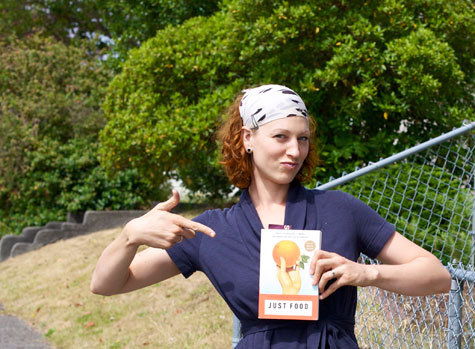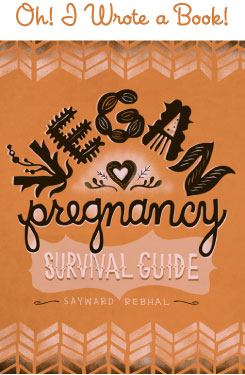
Hello hello! Are you all caught up on your reading? I did mine while I was away, and I have to say, it was certainly . . . interesting. So far this book is not what I expected! But I won’t get into all that just yet.
So, I’ve been wrassling with how to best host an effective and fun discussion, and what I’ve finally settled on is this: I’m going to ask a series of pointed questions relating to the Introduction and the first three chapters. However, I’ll reserve my own comments until later, because what I really want is for YOU to take the lead, and to share your thoughts without influence.
So, you can respond specifically to my questions, or you can simply offer your own impressions, or you can ask your own questions – all in the comment section below. Which leads me to . . .

Over the weekend we revamped the commenting section. I really adored the custom look that Damian had originally designed, but the framework didn’t allow for much flexibility. With the new system, you’re able to respond to someone directly, under their comment, which keeps things straightforward and streamlined. This also allows for multiple conversations to occur simultaneously on a single post, with no interference. I’m really excited about this feature and it was implemented specifically for the BBC discussions, so I hope you guys enjoy it!
Okay, so here are your questions. You can answer them directly, use them as a jumping off point, or ignore them completely. Whatever suits your fancy!
1) McWilliams is, himself, a former “locavore” activist, and at times he seems to speak straight from the heart. But he’s also an agricultural historian, and he brings a certain academic tone into his writing. How does his style strike you? Do you find this book to be an easy read, or is it more of a slog?
2) The first chapter addresses food miles and the issue of oversimplifying how to feed a global community in a sustainable manner. McWilliams argues that food miles are a small and insignificant piece of this large and complicated puzzle. Do you agree?
3) Life-cycle assessments (LCAs) seem to provide a far superior analysis, but do you think that using LCAs is a realistic expectation for the common consumer?
4) McWilliams is pretty hard on the organic movement and its actual ability to feed the planet. After reading his arguments, where do you fall? Have you changed your thoughts on eating organic?
5) Do you think McWilliams did a thorough job of covering the organic issue? If not, what issues or perspectives do you think were missing?
6) McWilliams is an advocate for genetically modified (GM) food. Is he crazy?
7) No but seriously, he seems to make a pretty strong case. But again, do you feel like it was a thorough examination of all the relevant considerations? Did it change your mind? Make you re-evaluate? Make you think?
8) The subtitle of the book promises to identify “Where Locavores Get It Wrong And How We Can Truly Eat Responsibly“. Thus far, do you think that McWilliams has succeeded in doing this?
Discuss in the comments below. I can’t wait to hear your thoughts!

-
http://bonzaiaphrodite.com/ Sayward Rebhal
-
http://bonzaiaphrodite.com/ Sayward Rebhal
-
http://bonzaiaphrodite.com/ Sayward Rebhal
-
http://bonzaiaphrodite.com/ Sayward Rebhal
-
http://bonzaiaphrodite.com/ Sayward Rebhal
-
http://bonzaiaphrodite.com/ Sayward Rebhal
-
http://bonzaiaphrodite.com/ Sayward Rebhal
-
http://bonzaiaphrodite.com/ Sayward Rebhal
-
http://bonzaiaphrodite.com/ Sayward Rebhal
-
http://bonzaiaphrodite.com/ Sayward Rebhal
-
http://bonzaiaphrodite.com/ Sayward Rebhal
-
http://bonzaiaphrodite.com/ Sayward Rebhal
-
http://bonzaiaphrodite.com/ Sayward Rebhal
-
http://bonzaiaphrodite.com/ Sayward Rebhal
-
tara
-
Kate
-
Kate
-
Kate
-
http://windycityvegan.wordpress.com Monika {windycityvegan}
-
http://bonzaiaphrodite.com/ Sayward Rebhal
-
http://bonzaiaphrodite.com/ Sayward Rebhal
-
http://bonzaiaphrodite.com/ Sayward Rebhal
-
Bliss Doubt
-
Bliss Doubt
-
Bliss Doubt
-
mark e
-
mark e
-
http://bonzaiaphrodite.com/ Sayward Rebhal
-
http://bonzaiaphrodite.com/ Sayward Rebhal
-
http://bonzaiaphrodite.com/ Sayward Rebhal
-
Resa



